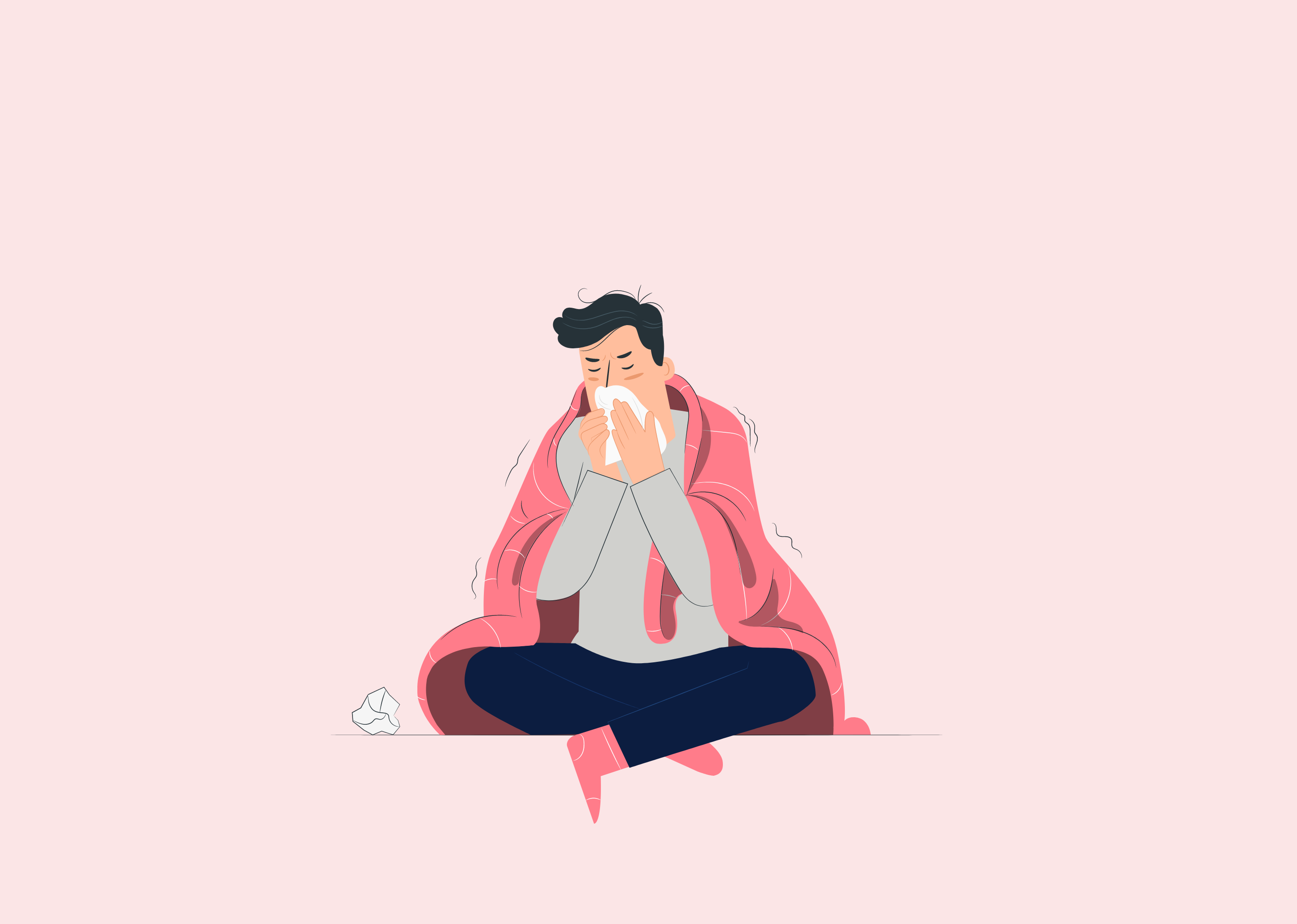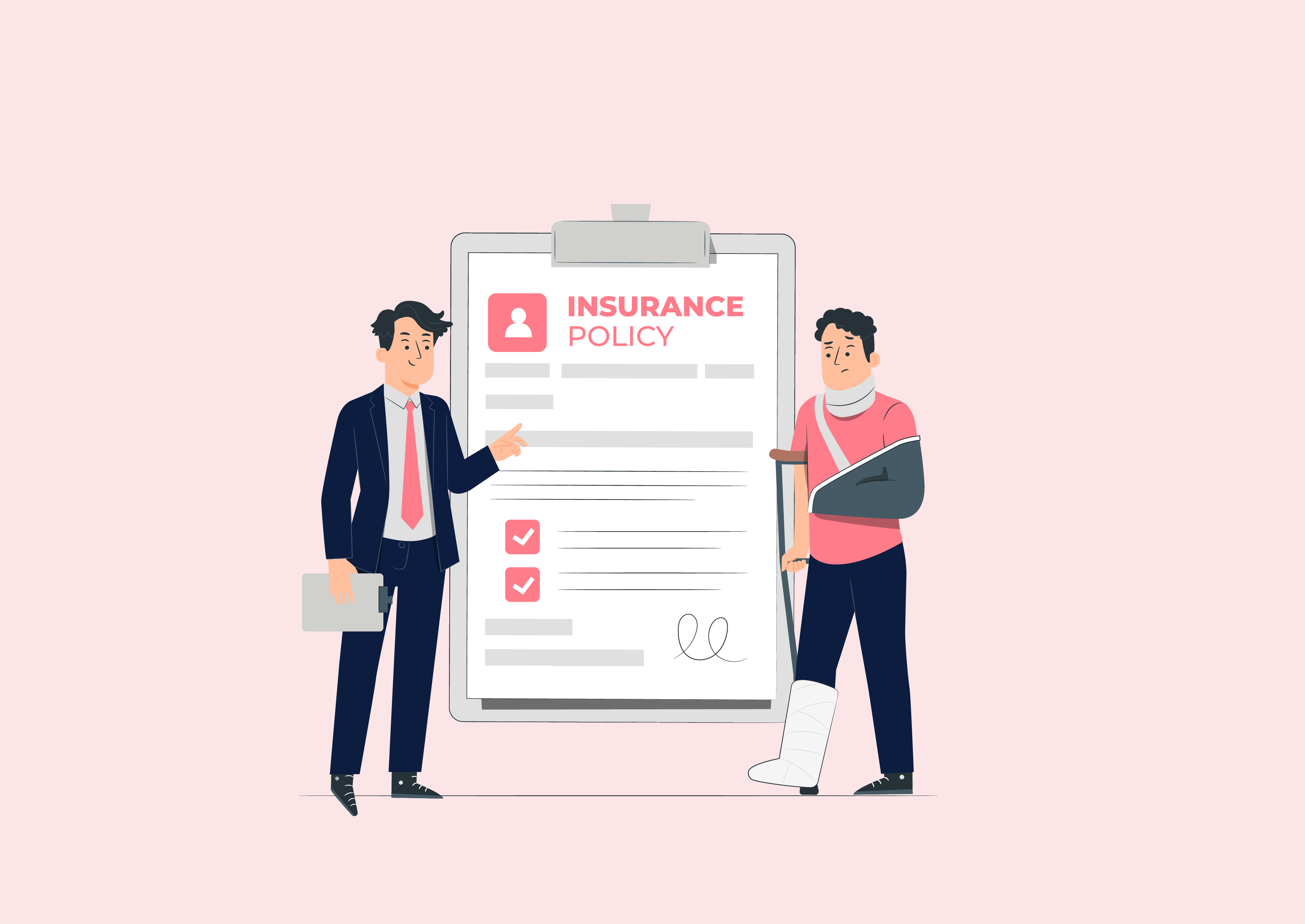
Burnout, personal injury, the flu, or the common cold – these are all examples of legitimate reasons employees in the Netherlands call in to work to take a sick day. The Dutch are renowned for their progressive approach to labour laws and employee welfare, and this applies especially to sick leave policies.
This blog post is going to delve into the nuances of the Dutch sick leave system in a general sense. Since it’s the season for catching an illness, it’s a good time to review sick leave policies in the Netherlands. If your HR team needs support administrating or developing their own sick leave policy, get in touch with us!
When is a doctor’s note needed?
Role of a ‘company doctor’ (bedrijfarts)
Employer policies on sick leave
Reasons to grant sick leave
In general, allowing an employee to take sick leave is determined on a case-by-case basis between the company and employee. This is especially true if an employee is only taking leave for a few days, or a couple of weeks. If an employee is requesting to use sick leave, there is trust that the employee is seriously unable to perform their tasks.
At the same time, the employee’s privacy about their health is very important. If an employee calls in sick, they do not have to give a reason why, nor should you ask them why. However, you can ask when to expect them back at work, and whether any of their tasks can be taken over while they are out.
If the employee needs to take leave because of pregnancy, or because they are donating an organ, they will need to inform the HR team of this. In either of these cases, the HR team needs to be informed of the reason because they will be compensated for their leave differently from “regular” sick leave.
If an employee is going to be out-of-work for a longer period, it is commonplace for the employee and manager to chat about how the employee’s tasks will be completed in their absence.
Payment of sick leave
The legal minimum is 70% of an employee’s wage is paid for everyday they are sick (although some companies can introduce ‘waiting days,’ meaning the company can wait for two days to pay their employee) for up to two years. However, it is common for the employer to offer more than that.
Many companies in the Netherlands choose to pay 100% of their employees’ salary for a certain period. To be sick or injured for such a long period is already stressful enough – the purpose of paying 100% of the salary is to ensure that recovery is the employee’s top priority; not making up for lost wages. We find that progressive sick leave payment gives employees peace of mind – and hopefully such a policy is never needed.
After two years (104 weeks), you are allowed to end the employment contract and your employee will likely be eligible to receive unemployment benefits from the Dutch government (Wet werk en inkomen naar arbeidsvermogen, WIA) should they apply correctly. The government then will take-over paying your employee’s wages. For this to occur, both the company and the employee will need to demonstrate that they have done everything possible to return the employee to work.
Allocation of sick days
In general, there is no allotted number of sick days in workplaces in the Netherlands – after all, sick is sick. The employee’s welfare is most important and giving them the time and space to fully recover will ensure they are able to perform their best at work. In the Netherlands, as well as several other countries in Europe, it is not possible for employers to specifically allocate a number of sick days for their employees as a part of their HR policy.
When is a doctor’s note needed?
Many companies in the Netherlands do not require their employees to submit a doctor’s note when they report in sick, unlike many other countries. In the event an employee’s illness or inability to work needs to be verified, the employee should meet with the company doctor (bedrijfarts).
Speaking to a company doctor is generally the preferred route taken by companies in the Netherlands for several reasons: firstly, it minimizes the company’s risk of violating employee-privacy laws about their health. Secondly, the company doctor’s opinion generally trumps that of the employee’s personal doctor – this is due to the fact that their education and qualifications are specifically suited to determine whether the employee is fit for work. Lastly, consulting with the company doctor is an essential step for ‘re-integration’ of the employee after long-term illness or injury.
Role of a ‘company doctor’ (Bedrijfarts)
The role of a ‘company doctor’ is relatively unique to the Netherlands. In short, a ‘company doctor’ is an external party (hired by the company) to monitor the health and safety of the employees and ensure that the business upholds the proper health and safety standards. They collaborate with the company to ensure that employees get healthy as soon as possible – and stay that way! Company doctors are generally service providers, or they act as freelancers.
Most companies in the Netherlands are required to work with a company doctor by law. The most common case for consulting a company doctor is when an employee needs a ‘reintegration plan’. This ‘reintegration’ procedure is needed in order for your employee to receive unemployment benefits from the government – otherwise, your company is required to continue paying their wages for the entire time they are ill.
A company may also request that an employee meet with the company doctor if the company needs more information or insight into the employee’s condition, for example, if foul play is suspected. In the case of long-term illness, this step becomes mandatory after 6 weeks.
Employer policies on sick leave
What constitutes a sick leave policy in the Netherlands? Naturally, there are two point-of-views to consider: what is needed by your HR team to be compliant with Dutch law, and what is required of your employees?
There are several laws your HR team should be familiar with in order to develop a policy – such as the Gatekeeper Improvement Act (wet verbeting poortwachter), working conditions act, and Capacity for Work Act (Werk en inkomen naar arbeidsvermogen, WIA) to list a few. Depending on the industry and specific needs of your company, there is likely additional laws to consider. Take a look at the official step-by-step procedure and consider how to adapt it to fit your company’s operational needs.
For employees, we recommend focusing on what communication is needed from the employee in the event they need to take time off of work when ill. For example, who needs to be informed? Is there a dedicated person in your company in addition to their manager who should be in the know? Is there a specific time period employees can make this call? This would also be the opportunity to request that your employees be able to give an indication when they will be back at work, or if they are able to perform their tasks from home.
The company policy could also include information about the employee’s rights and how much they will be paid. Will your company pay 70% of their wages while out-of-work, or a higher amount?
Get in touch with us
As an HR professional working in the Netherlands, it is necessary to familiarize yourself with the nuances of the Dutch sick leave system to ensure your business acts with compliance, and most importantly, is well-equipped to look after the wellbeing of employees when they need it the most.
Keep in mind that the regulations mentioned in this article are correct as of 2024 – but they are revised on a regular basis. Our HR experts are always informed by the latest changes and can review your company policies to ensure compliance with local government directives. Book a consultation call with one of our experts to learn more about how we can help adapt your company’s policies!
more news

Dutch health insurance 101: a beginner’s guide
08-12-23
Are you planning to come to the Netherlands for work? Everyone who lives or works in the Netherlands is required by law to take out Dutch health insurance. A standard health insurance package is compulsory covering consultation with a GP, hospital treatment, and prescription, while an additional package such as for dental check-ups is optional.

General tips on the absenteeism interview or long-term sick leave check-in
02-11-23
First things first. As an employer you have a duty of care to your employees. Most companies feel this duty very acutely; however, it is not easy to put it into practice. Here are 10 tips on making the absenteeism ...